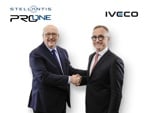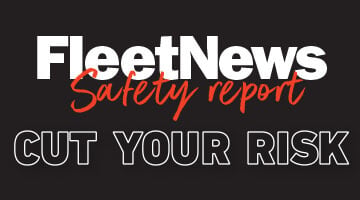Understanding the perspective of the procurement department can save money, lead to better decisions and enhance working relationships.
Companies take different approaches to the engagement of fleet managers and procurement when it comes to fleet investment – but at their best they work as an integrated or highly-collaborative team.
At one end, the smallest car fleets may exist without a fleet manager at all, with fleet responsibilities devolved to purchasing manager or finance director. For example, at Hewlett Packard business centre 3C Technology, the procurement manager or FD makes all fleet decisions as the fleet is not large enough to warrant a specific fleet manager.
At the other end, fleet may be such a crucial component of the operation that fleet managers move up into full-time procurement roles, such as Simon Boggis, chief procurement officer at Ceva Logistics, who has extensive fleet management experience.
Absorbing the fleet manager role into procurement gives Ceva Logistics a more rounded view, not only of operational and commercial factors but also the specific skills needed to choose and drive the right deal.
Boggis says that while total cost of ownership is always a guiding principle, it is important to identify the other drivers of the purchasing objective. “It depends upon your sector and what you want to achieve,” he says. “Do you want to incentivise employees and therefore choose great cars? Or is there a more operational driver?”
Ceva operates in the low-margin logistics sector. Its procurement objectives for trucks, therefore, have an operational focus, but for the car fleet it has a far more generic approach which emphasises HR and environmental factors.
“We want to provide drivers with the right tool to do the job,” says Boggis. “We offer perk cars for management roles to be competitive within their peer group. But there may be drivers who have specific needs, such as young children or disabilities and, for this, human resources can be instrumental in making sure the car meets their needs.”
He adds: “It is totally possible to have tension between operations and finance. So you need to strip the proposal to its basic form and then show the elements you want to add and what benefits those confer. should be a blend of engineering, finance and HR knowledge.”
This means enabling and recognising each other’s expertise. Each side must appreciate the expertise that comes with the alternate role. Fleet managers may be very aware of their own value but must be prepared to accept the high level of expertise that exists in modern procurement. If they are determined to see procurement experts as bean counters, it is unlikely to be a fruitful relationship.
John Webb, principal consultant at Lex Autolease, points out that procurement has become, by necessity, increasingly specialised.
“Fleet services have become more comprehensive than ever and a wide range of products are on offer, either on an individual or bundled package basis,” he says.
“At the same time, many large organisations have concentrated on core business activities and looked for a long-term outsourcing partnership.
“These two factors mean the procurement process has become increasingly complex and high risk. Within a highly-competitive market, the procurement and negotiation process requires professionally-qualified (Chartered Institute of Purchasing and Supply) buyers to lead the way.”
The fleet manager’s role is best served by considering issues such as whether the vehicles fit the operational needs of the fleet, their availability, cultural needs and the overall value-for-money proposition, taking into account aspects such as service plans.
Fleet managers can then work with procurement experts to find the best funding arrangements in line with the company’s financial objectives, such as cashflow, VAT status, corporation tax and balance sheet implications. In most cases the fleet manager should not start by looking at upfront cost.
Simon Preston, purchasing manager at 3C Technology, says upfront price is important because the company prefers to buy vehicles outright, but it doesn’t trump availability or overall value.
“If I need cars in three months and we have to pay £300 or £400 more apiece to achieve that, then so be it,” he says.
“There is no point in achieving the right price but not being able to access the vehicles.”
Preston also looks carefully at the service plans available – the company wants clear upfront costs for maintenance and cars that won’t become expensive to maintain before their four-year stint is up.
“From my point of view in procurement, it’s about finding the best price within my chosen window and, from a company point of view, it’s about quality of warranties, service plans and availability,” he says.
Supplier partnerships which offer ongoing support and innovation, not only around the vehicles but cost and KPIs, are essential. Webb says: “Many organisations are looking to fleet suppliers to support them on CSR initiatives and provide innovation, insight and continuous improvement.”
The fleet manager should be able to develop a relationship with a good supplier which becomes an extension of their own organisation’s capability – and yet remain business-like enough that the incumbent doesn’t take advantage of the relationship. Having a procurement department which can take more of an arm’s length approach to negotiations can be advantageous to the fleet and the company overall.
Boggis says: “Relationships don’t cost you money – the wrong relationships cost you money. The right ones enable you to do so much more.”
These relationships can then form a core of ‘first choice’ suppliers, with decisions enhanced by the brand neutrality of the procurement experts and the product knowledge of the fleet managers.
The most important aspect of the communication between fleet managers and procurement departments is to align their objectives.
“Ideally, there should be no difference – both should be looking for a fleet that meets specification and quality standards for the lowest wholelife cost,” says Webb.
“However, where the roles and responsibilities of each are not clearly defined, fleet managers can feel that procurement is stepping on their toes.”
Outsourcing conversations can be threatening and structural and communication issues can lead to conflict. This is often not aided by the fact that each is likely to have different line management.
“Problems can be avoided and overcome by agreeing roles and responsibilities and procurement aims and objectives. Clear communication and the establishment of feedback mechanisms are also crucial,” says Webb.
After all, “any procurement process that has a negative impact on quality and core business performance will have failed”.
















Login to comment
Comments
No comments have been made yet.